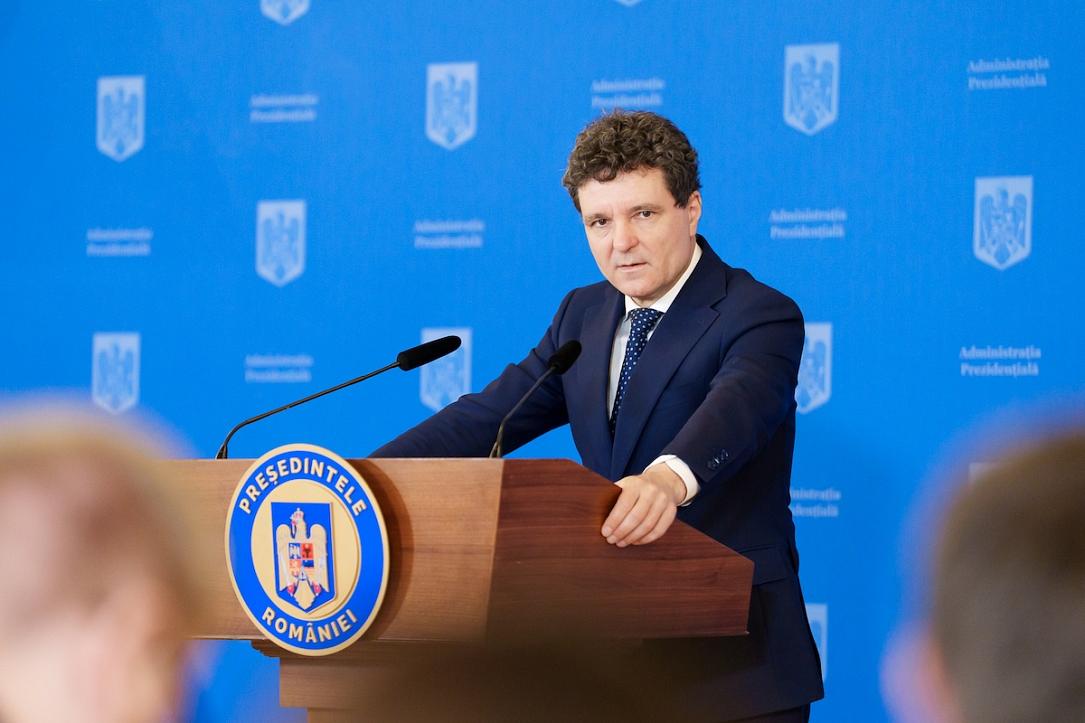Romania’s president Nicusor Dan, in an interview for Antena 1 TV station, said the stable government is his main achievement in the first 100 days in office, evaluated his performance at 7-8 out of ten, and described his relationship with prime minister Ilie Bolojan (a topic on the last days’ agenda) as “correct” without denying certain personal disagreements.
“There were three important moments. First, we faced the challenge of forming a stable government. Then we had to settle the public deficit problem – and fortunately, it came under control. And finally, there was the external activity, which was, in my opinion, consistently underpinned by many meetings, [an activity that] was imperative. Europe, the world wanted to see what was happening in Romania,” declared president Dan, as reported by Digi24.
Regarding the relationship with prime minister Bolojan, he said that it is “a correct” one.
The head of state mentioned that what matters in Romanian politics is that the coalition works and the relationship between the president, government, and Parliament has not had tensions.
“We must appreciate the parties for wanting to back a government. The easiest thing [for each of the parties] would have been to stay out of the ruling coalition. Currently, the coalition is operational. The discussions [among the parties] are good. We have a president-government-Parliament relationship that has not undergone any tensions. Beyond that, on a personal level, things may happen,” said the head of state.
The early perception of president Dan and prime minister Bolojan as political partners has shifted.
Nicusor Dan is no longer directly involved in shaping fiscal reforms and has argued for a more gradual approach, diverging from Ilie Bolojan’s insistence on rapid measures such as the VAT increase adopted in July on the European Commission’s recommendation. President Dan had previously insisted on no VAT rate hike, and, since then, the government took other steps that diverged from the president’s views. Bolojan, in a recent interview, made clear that the government alone is responsible for economic policy.
Dan has faced criticism over the absence of expert advisers at the presidency and over his perceived tolerance of far-right positions. He referred a draft law toughening penalties for antisemitism to the Constitutional Court, which rejected his objections, before returning the text to lawmakers. Meanwhile, speculation about his alleged preferences for intelligence service leadership appointments and past comments on the far-right Fundația Ion Gavrilă Ogoranu have fuelled concerns about his political positioning supposedly aimed at broadening his electoral base with moderate right-wing segments.
By contrast, Bolojan has consolidated his reputation for persistence. He pushed forward with a second reform package despite setbacks, including the resignation of deputy prime minister for state-owned enterprise reforms, Dragoș Anastasiu, amid a bribery scandal. Bolojan assumed responsibility for the reforms himself, delivering results in a softer form than originally planned.
He also overruled data presented by Public Administration Minister Cseke Attila, which understated job cuts by focusing on vacant posts, and set a firm target of a 10% reduction in current staff.
Although the reform of local administrations was delayed by two weeks, observers view the decision as pragmatic. The measure is now expected to be the central element of the second reform package, as other chapters, such as magistrates’ pensions and SOE governance, have already been softened.
iulian@romania-insider.com
(Photo source: Presidency.ro)
